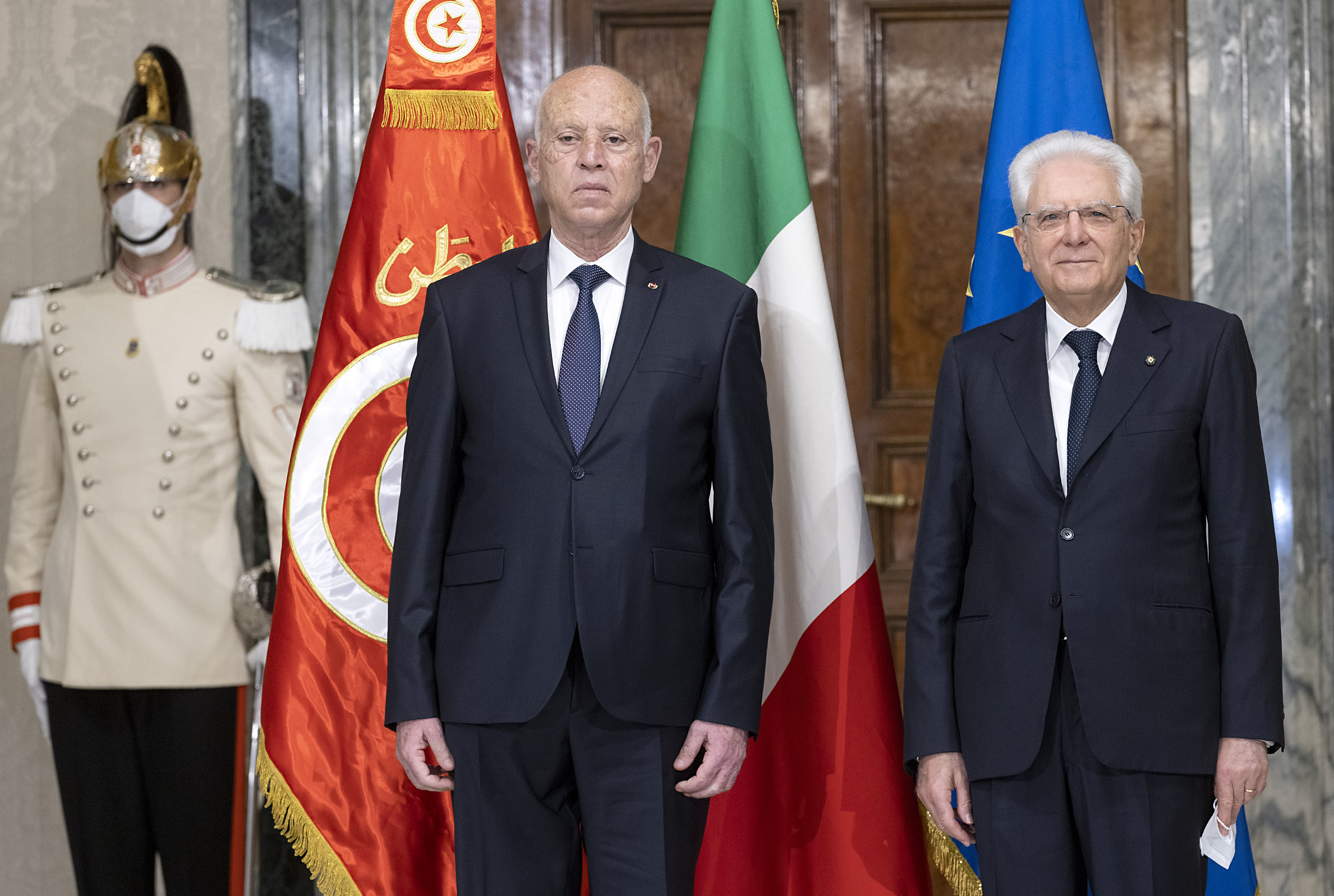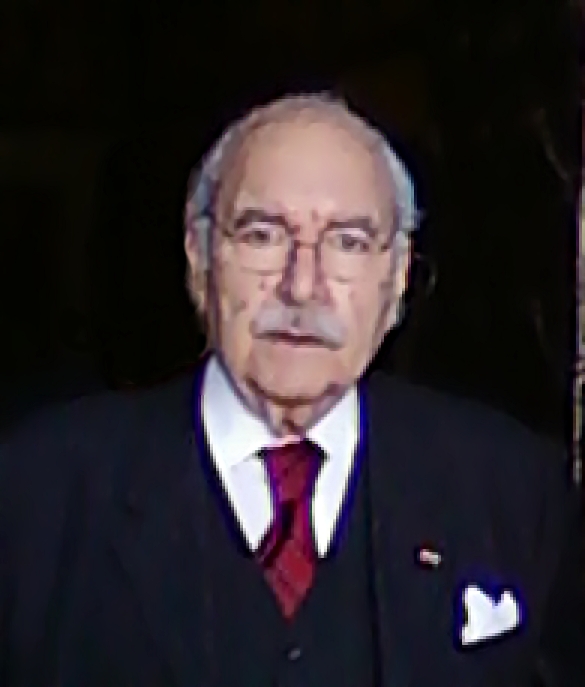|
Parliament Of Tunisia
The Tunisian Parliament ( ') is the bicameral institution exercising the legislative power of the Tunisian Republic. After the election of a constituent assembly in 1956, the Constitution of 1959 created the National Assembly, which became the Chamber of Deputies in 1981. The constitutional reform of 1 June 2002 created a second chamber, the parliament thus becoming bicameral; it is therefore composed of the Chamber of Deputies, which has become the lower house, and the Chamber of Advisors, the new upper house. During the transitional period following the 2011 revolution, parliament once again had a single chamber, the constituent assembly, a configuration confirmed by the creation of the Assembly of the Representatives of the People (ARP) by the 2014 Constitution. The Tunisian Constitution of 2022 restores an upper house, called the National Council of Regions and Districts (NCRD). Timeline The first legislative elections took place in 1959, at the same time as the election ... [...More Info...] [...Related Items...] OR: [Wikipedia] [Google] [Baidu] |
Bicameralism
Bicameralism is a type of legislature that is divided into two separate Deliberative assembly, assemblies, chambers, or houses, known as a bicameral legislature. Bicameralism is distinguished from unicameralism, in which all members deliberate and vote as a single group. , roughly 40% of the world's national legislatures are bicameral, while unicameralism represents 60% nationally and much more at the subnational level. Often, the members of the two chambers are elected or selected by different methods, which vary from Jurisdiction (area), jurisdiction to jurisdiction. This can often lead to the two chambers having very different compositions of members. Enactment of a bill, Enactment of primary legislation often requires a concurrent majority—the approval of a majority of members in each of the chambers of the legislature. When this is the case, the legislature may be called an example of perfect bicameralism. However, in many parliamentary and semi-presidential systems, th ... [...More Info...] [...Related Items...] OR: [Wikipedia] [Google] [Baidu] |
Tunisian Constitution Of 2022
The Constitution of the Republic of Tunisia 2022, or the Third Republic Constitution, is the current constitution of Tunisia that was adopted in Tunisia on 25 July 2022 after the voters approved the constitutional referendum that was held on the same day. As the country's supreme legal standard, it constitutes the fourth Constitution of the country's modern history after the 1861 Constitution, the 1959 Constitution and the 2014 Constitution. The Constitution entered into force on 16 August 2022. History On 25 July 2021, the day commemorating the declaration of the Republic, after months of tensions between the President of the Republic, Kais Saied, and members of the Assembly of the Representatives of the People, thousands of demonstrators demanded the dissolution of the parliament and the change of the regime. These gatherings come as the health crisis linked to the COVID-19 pandemic. On the same evening, and based on Article 80 of the 2014 Constitution, Kais Saied ... [...More Info...] [...Related Items...] OR: [Wikipedia] [Google] [Baidu] |
Parliaments By Country
In modern politics and history, a parliament is a legislative body of government. Generally, a modern parliament has three functions: representing the electorate, making laws, and overseeing the government via hearings and inquiries. The term is similar to the idea of a senate, synod or congress and is commonly used in countries that are current or former monarchies. Some contexts restrict the use of the word ''parliament'' to parliamentary systems, although it is also used to describe the legislature in some presidential systems (e.g., the Parliament of Ghana), even where it is not in the official name. Historically, parliaments included various kinds of deliberative, consultative, and judicial assemblies. What is considered to be the first modern parliament, was the Cortes of León, held in the Kingdom of León in 1188. According to the UNESCO, the Decreta of Leon of 1188 is the oldest documentary manifestation of the European parliamentary system. In addition, ... [...More Info...] [...Related Items...] OR: [Wikipedia] [Google] [Baidu] |
Government Of Tunisia
The politics of Tunisia takes place within the framework of a unitary semi-presidential representative democratic republic, with a president serving as head of state, prime minister as head of government, a unicameral legislature and a court system influenced by French civil law. Between 1956 and 2011, Tunisia operated as a '' de facto'' one-party state, with politics dominated by the secular Constitutional Democratic Rally (RCD) under former presidents Habib Bourguiba and then Zine el Abidine Ben Ali. However, in 2011 a national uprising led to the ousting of Ben Ali and the dismantling of the RCD, paving the way for a multi-party democracy. October 2014 saw the first democratic parliamentary elections since the 2011 revolution, resulting in a win by the secularist Nidaa Tounes party with 85 seats in the 217-member assembly. Tunisia is a member of the Arab League, the African Union and the Organization of Islamic Cooperation. It maintains close relations with the United St ... [...More Info...] [...Related Items...] OR: [Wikipedia] [Google] [Baidu] |
Higher Authority For Realisation Of The Objectives Of The Revolution, Political Reform And Democratic Transition
The Higher Authority for Realisation of the Objectives of the Revolution, Political Reform and Democratic Transition (, ') was a transitional authority in the aftermath of the Tunisian Revolution. It was created on 15 March 2011 by merging of the ''Conseil de défense de la révolution'' and the shortlived Higher Political Reform Commission. Yadh Ben Achour was named president of the authority. Having finished its mission, the authority was dissolved on 13 October 2011. References Tunisian revolution 2011 establishments in Tunisia 2011 disestablishments in Tunisia Reform in Tunisia {{Tunisia-stub ... [...More Info...] [...Related Items...] OR: [Wikipedia] [Google] [Baidu] |
Kais Saied
Kais Saied ( ; born 22 February 1958) is a Tunisian politician, jurist and retired assistant professor of law currently serving as the fifth president of Tunisia since October 2019. He was president of the Tunisian Association of Constitutional Law from 1995 to 2019. Having worked in various legal and academic roles since the 1980s, Saied joined the 2019 Tunisian presidential election, 2019 presidential election as an Independent politician, independent social conservative supported by Ennahda and others across the political spectrum. Running with little campaigning, Saied ran on a populist anti-corruption platform. He won the second round of the election with 72.71% of the vote, defeating Nabil Karoui, and was sworn in as president on 23 October 2019. As president, Saied has overseen democratic backsliding, as he has repressed the political opposition and dissidents in Tunisia. In January 2021, 2021 Tunisian protests, protests began in response to alleged police brutality, ec ... [...More Info...] [...Related Items...] OR: [Wikipedia] [Google] [Baidu] |
Fouad Mebazaa
Fouad Mebazaa (; 15 June 1933 – 23 April 2025) was a Tunisian politician who was the acting president of Tunisia from 15 January 2011 to 13 December 2011. He was active in Neo Destour prior to Tunisian independence, served as Minister of Youth and Sports, Minister of Public Health, and Minister of Culture and Information, and was List of Presidents of the Chamber of Deputies of Tunisia, Speaker of the Chamber of Deputies of Tunisia from 1991 to 2011. Political career Pre-independence Born during the History of French-era Tunisia, French occupation of Tunisia, Mebazaa became a member of the "constitutional youth" in 1947 and was elected a member of the Aix-en-Provence, Aix–Marseille unit of the Neo Destour political party, which played a major role in gaining independence from France. He was elected as Secretary-General of the La Marsa, Marsa unit of Neo Destour in 1955 and President of its Montpellier unit in 1956. 1956–2010 After History of French era Tunisia#Independence ... [...More Info...] [...Related Items...] OR: [Wikipedia] [Google] [Baidu] |
Sahbi Karoui
Sahbi Karoui is a member of the African Union's Pan-African Parliament representing Tunisia. who succeeded the interim as acting temporarily left the office of the |
Zine El Abidine Ben Ali
Zine El Abidine Ben Ali (Tunisian Arabic: , ; 3 September 1936 – 19 September 2019), commonly known as Ben Ali or Ezzine, was a Tunisian politician who served as the second President of Tunisia from 1987 to 2011. In that year, during the Tunisian revolution, he was overthrown and fled to Saudi Arabia. Ben Ali was appointed Prime Minister in October 1987. He assumed the Presidency on 7 November 1987 in a bloodless coup d'état that ousted President Habib Bourguiba by declaring him incompetent. Ben Ali led an authoritarian regime. He was reelected in several non-democratic elections where he won with enormous majorities, each time exceeding 90% of the vote, his final re-election coming on 25 October 2009. Ben Ali was the penultimate surviving leader deposed in the Arab Spring; he was survived by Egypt's Hosni Mubarak, the latter dying in February 2020. On 14 January 2011, following a month of protests against his rule, he fled to Saudi Arabia along with his wife Leïla Ben ... [...More Info...] [...Related Items...] OR: [Wikipedia] [Google] [Baidu] |
National Council Of Regions And Districts
The National Council of Regions and Districts () is the upper house of the Parliament of Tunisia since the promulgation of the New Constitution approved during the constitutional referendum of 25 July 2022. Role and functions According to article 84 of the Tunisian Constitution of 2022 projects relating to the state budget and regional development plans must be submitted to the National Council to ensure a balance between the regions and territories. The National Council of Regions and Districts is responsible for legislative power. According to article 85 of the Constitution, it exercises a control function regarding the implementation of budgets and development plans. Voting method The National Council of Regions and Districts is made up of deputies elected indirectly by members of the regional and district councils, with three seats per region and one seat per district. Members of each regional council elect three members by multi-member majority vote, while those of each ... [...More Info...] [...Related Items...] OR: [Wikipedia] [Google] [Baidu] |
Tunisian Constitution Of 2014
The Tunisian Constitution of 2014 () was adopted on 26 January 2014 by the Constituent Assembly of Tunisia, Constituent Assembly, elected on 23 October 2011 in the wake of Tunisia's Tunisian Revolution, Jasmine Revolution that overthrew President Zine El Abidine Ben Ali. It was passed on 10 February 2014, replacing the constitutional law of 16 December 2011 that temporarily formed the basis of government after the suspension of the Constitution of Tunisia#Constitution of 1959, Constitution of 1959. The Supreme Law of the State, it is the third Constitution of Tunisia, Constitution of the country's modern history after the Constitution of Tunisia#Constitution of 1861, Constitutions of 1861 and 1959. History The articles of the Constitution were debated one by one at a plenary session, from December 2013 to January 2014, in a context of heated debate, which delayed the review. [...More Info...] [...Related Items...] OR: [Wikipedia] [Google] [Baidu] |
Legislature
A legislature (, ) is a deliberative assembly with the legal authority to make laws for a political entity such as a country, nation or city on behalf of the people therein. They are often contrasted with the executive and judicial powers of government. Legislatures can exist at different levels of government–national, state/provincial/regional, local, even supranational (such as the European Parliament). Countries differ as to what extent they grant deliberative assemblies at the subnational law-making power, as opposed to purely administrative responsibilities. Laws enacted by legislatures are usually known as primary legislation. In addition, legislatures may observe and steer governing actions, with authority to amend the budget involved. The members of a legislature are called legislators. In a democracy, legislators are most commonly popularly elected, although indirect election and appointment by the executive are also used, particularly for bicameral legis ... [...More Info...] [...Related Items...] OR: [Wikipedia] [Google] [Baidu] |







